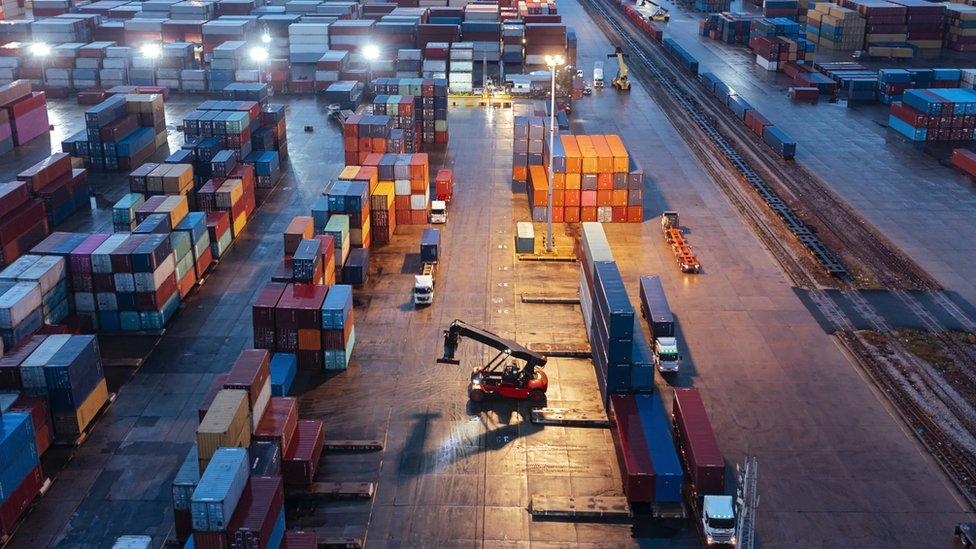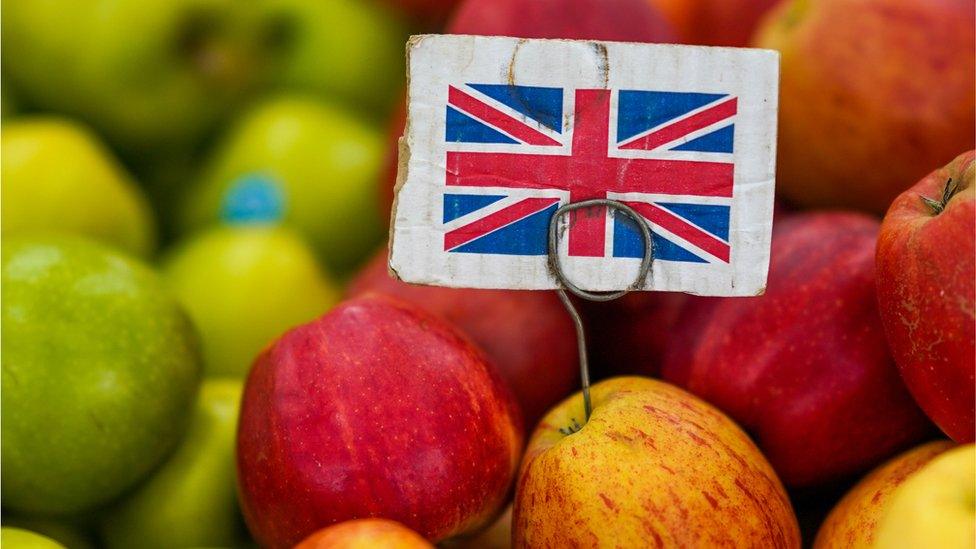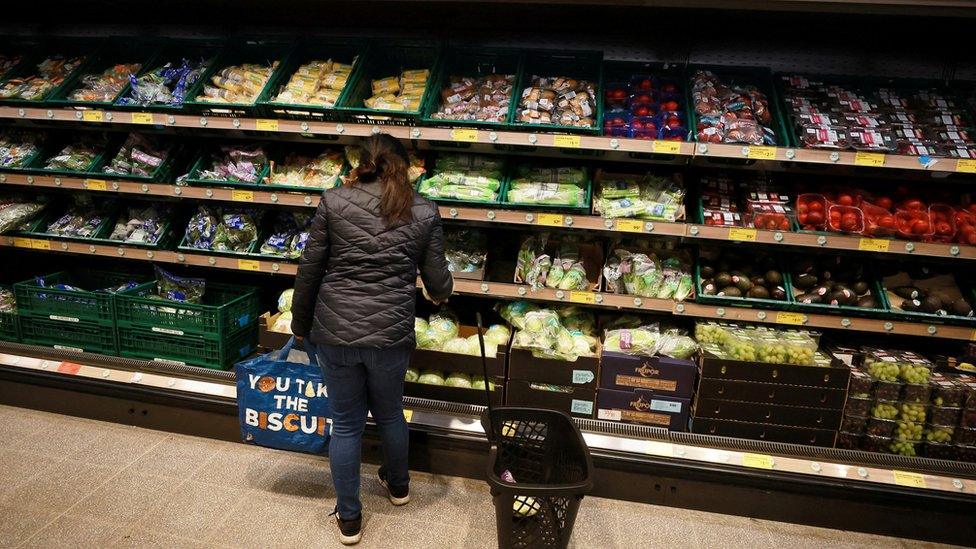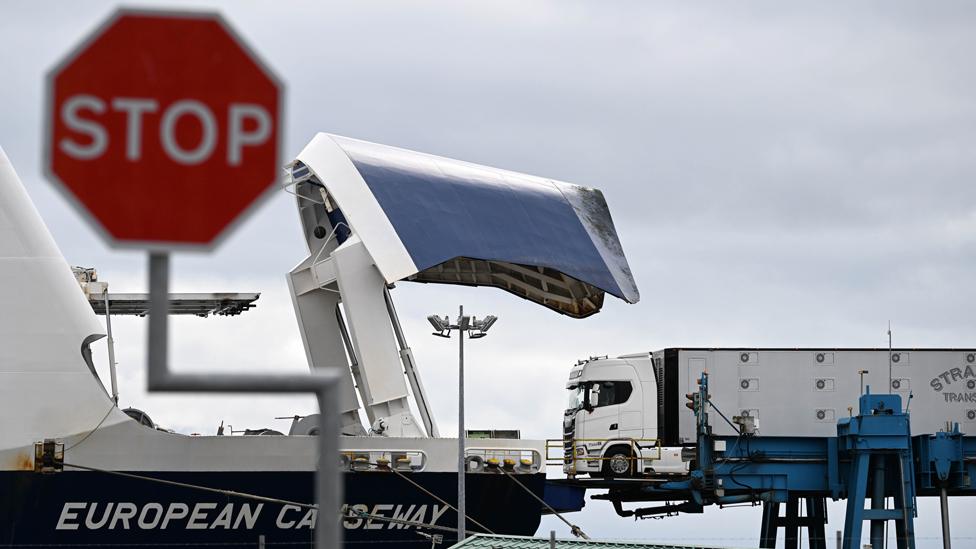Brexit: Figures show fall in Great Britain to NI goods sales
- Published

The data needs to be treated with caution but is closely watched to assess the impact of the Windsor Framework
The value of goods sales from Great Britain to Northern Ireland dropped by 2.4% in 2022, official data suggests.
Meanwhile the value of goods imported from the Republic of Ireland, the wider EU and the rest of the world all increased.
The data needs to be treated with caution as it is not adjusted for the impact of inflation.
Trade figures are closely watched by politicians to assess the impact of Northern Ireland's post-Brexit deal.
That deal, now known as the Windsor Framework, keeps Northern Ireland inside the EU's single market for goods creating a trade border for goods flowing from Great Britain to Northern Ireland.
The flipside is that goods can flow freely into Ireland and the wider EU as well as the UK internal market.
The framework is intended to encourage businesses in Great Britain to keep selling into Northern Ireland.

Some businesses complained that some companies in Great Britain are no longer selling to Northern Ireland as a result of Windsor Framework arrangements
Ulster University economist Esmond Birnie, who has been a critic of the Windsor Framework, said the new figures "do not prove trade diversion but suggests it is highly likely".
"It's also very likely that this represents a shift to higher- cost suppliers - hence long-run harm to the economy overall, notwithstanding gains to particular businesses," he added.
The new figures from the NI Statistics and Research Agency (NISRA) show that £43.4bn of goods were purchased in Northern Ireland in 2022, an increase in value of 8.8%.
It is important to emphasise that the impact of inflation means the volume of goods purchased will not have risen by that much and may even have fallen.
Most of the goods purchased, almost £24bn worth, were purchased locally and increased in value by 11%.
Goods purchases from Great Britain were worth £11bn, down by 2.4% while imports from Ireland were worth almost £3bn, up by 4.8%.
Goods purchases from the wider EU were up 8.3% to £2.2bn while rest of the world goods imports were up 47% to £3.5bn.
Meanwhile the figures show the value of Northern Ireland's exports and external sales rose sharply but again the impact of inflation will have flattered this performance.
The rest of the UK remains Northern Ireland's biggest external market with goods sales of £9.6bn, up 17%, and £6bn of services, up 12%.
The Republic of Ireland is the biggest export market with goods exports of £4.6bn, up almost 15%, and £1.7bn of services, up almost 29%.
Overall exports of goods and services to the rest of the EU were up by 2% to £2.7bn, while exports to the rest of the world were up 16% to £4.2bn.
Related topics
- Published14 September 2023

- Published28 February 2023
